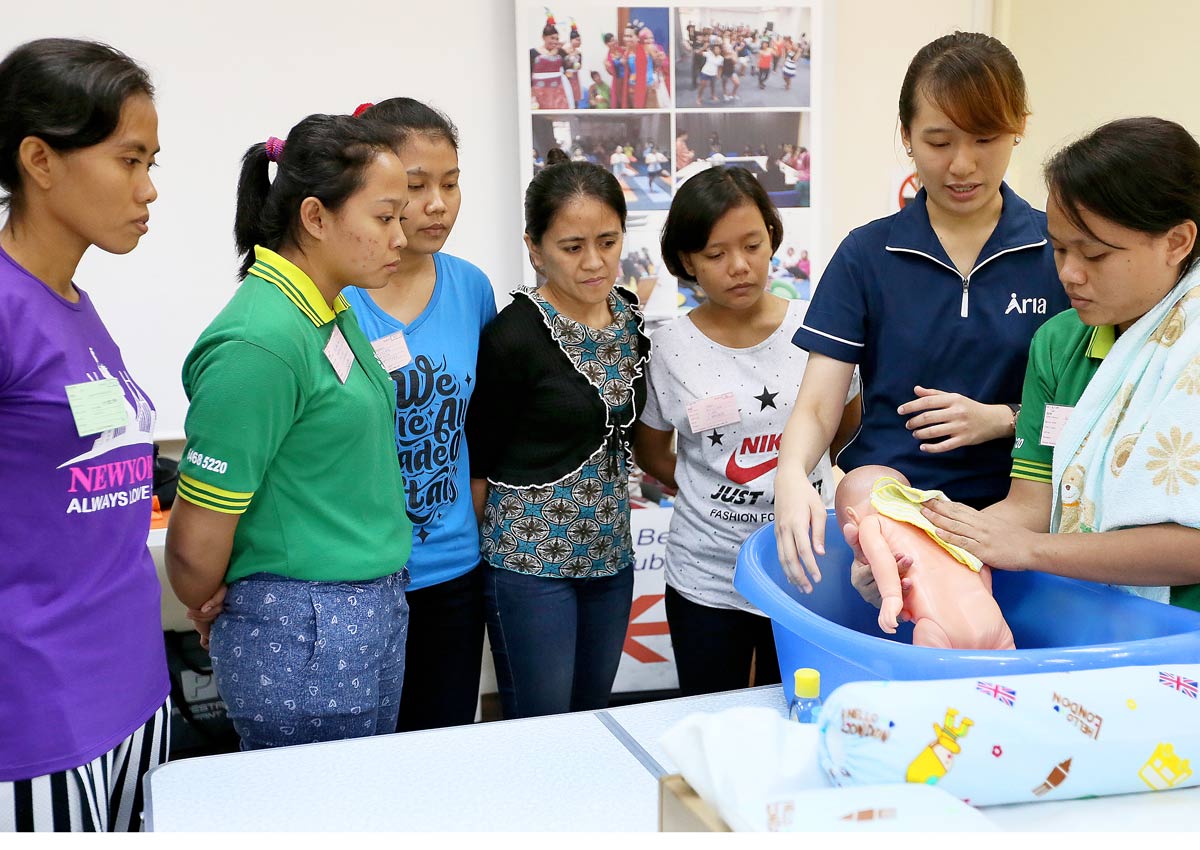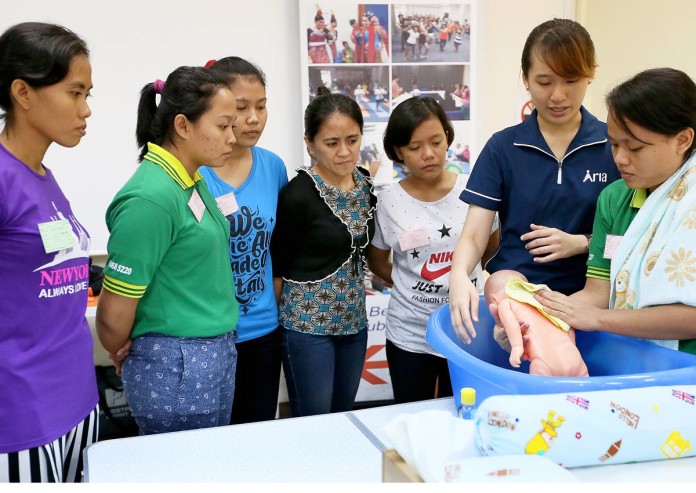Formed in 2005, Fast has five staff members and 120 volunteers.
The charity has a round-the-clock helpline for maids (1800-339-4357) and a befriender clubhouse, and runs vocational skills courses.
Treadmills line the wall of an exclusive gym. In another room, shelves of books wait to be perused by club members.
This is not a lush country club, but an office building in Bukit Merah, which houses the Foreign Domestic Worker Association for Social Support and Training (Fast) clubhouse.
Instead of fancy furniture and swanky art pieces, the amenities are simpler; the exercise equipment was donated by a maid agency and a training centre.
But the clubhouse, which Fast moved into in August after outgrowing its previous location, is popular and bursting at the seams every Sunday.
Some 300 to 400 women take turns to use the computers, kitchen and karaoke rooms, or learn about cooking, crochet or financial literacy.
Fast was started in 2005 with the aim of providing training that employers would be keen for domestic helpers to receive.
Before the mandatory rest day rule took effect in 2013, days off were not the norm for many domestic workers.
“Activities were a way for helpers to break away from the house for a few hours, meet other people, learn a craft and relieve some stress,” says executive director William Chew.
The charity, which is supported by the Ministry of Manpower (MOM), was formed by Mr Seah Seng Choon, who is president of Fast, Mr Chew, Mrs Helen Tan, a former president of the Association of Employment Agencies (Singapore), pastor Solano Reynaldo Ortiz, and Mrs Quek-Ng Siew Fong, a senior deputy director at MOM.
They were worried about the high numbers of domestic worker deaths after falls from high-rise buildings, whether through accidents or due to stress, and felt that MOM’s focus on language skills was not enough, says Mr Seah.
“Emotional stress seemed to be the biggest adjustment problem. The women have to live with a new family and adjust to the culture and practices here which could be quite alien to them. Some are homesick and missing their children, and at the same time have to cope with job stress,” says Mr Seah, who is also the executive director of the Consumers Association of Singapore.
One of the first things Fast did was launch training programmes to help new workers learn how to clean windows safely and cook, as well as how to build a good relationship with their employers.
Some of these later became part of the mandatory Settling-In Programme which MOM requires all new domestic helpers to attend.
Fast has since launched more in-depth courses with training providers such as a 160-hour eldercare course run by the Care Academy and an 80-hour infant and maternal care course by Aria Training and Consultancy.
As a charity, getting sponsorships and volunteers remains a challenge, as is finding a permanent building to call its own, says Mr Seah.
Fast hopes to advocate more for fair terms and better working conditions for domestic helpers.
It runs a 24-hour helpline which gets about 170 calls a month, a counselling service, and a shelter for maids who may be abused and need to be urgently rescued.
Where possible, the first choice is still to mediate and encourage employers and employees to foster strong relationships, says Mr Chew.
“It’s a totally different lifestyle Singaporeans have gotten through domestic workers’ help,” he says.
“If this is the lifestyle we want, we should ensure that we can integrate them well into the family.”
joseow@sph.com.sg

This article was first published on December 18, 2016.
Get a copy of The Straits Times or go to straitstimes.com for more stories.







